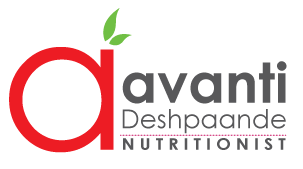B12 is a very vital vitamin for us but unfortunately its deficiency is very common these days. Almost 8 persons out of 10 are affected with B12 deficiency in India. (ref.-a study done by times of India in 2017). Although there are several different causes of the deficiency, vegetarianism or veganism is often linked with it. But is it really so?
What is vitamin B12
Vitamin B12 is a water soluble vitamin that regulates the functions of the brain and nervous system. It also plays an important role in the formation of blood. A Vitamin B12 deficiency may lead to irreversible damage to the brain and nervous system along with other symptoms like fatigue, depression and poor memory.
It is also known as ‘cobalamin’ or ‘cyanocobalamin’ because it contains cobalt in its structure.
Sources of B12
Vitamin B12 is naturally found in animal foods, including meats, fish, poultry, eggs and dairy. However, it can also be found in products fortified with B12, such as some varieties of grains flour and plant-based milk. But there are no vegetarian or plant sources for B12 unless it is fortified with it.
RDA for vitamin B12 is 2.4 micrograms (mcg)
Food sources and their value.
| Food | Amounts |
| Organ meat like liver, kidney | 75 mcg |
| Seafood | 70-75 mcg |
| Chicken | 0.5 mcg |
| 2 eggs | 1.5 mcg |
| Milk and milk products | 1.4-1.7 mcg |
(source- NDTV food- website: http://www.food.ndtv.com )
However food is not the only source of B12 to be utilized in the body.
Other factors play a crucial role like-
- Intestinal Micro flora
One of the important factors is that B12 can also be manufactured in our gut by the intestinal micro flora. These are the healthy micro organisms present in the intestine which are responsible for absorption of B12.
2. Instrinsic factor
There is also presence of intrinsic factor in the gut which is responsible for absorption of B12. It is produced by stomach along with gastric juices. If there is a lack of this factor due to genetic defect or any other reason, there is a high risk of developing B12 deficiency.
3. Consumption of cobalt containing foods and protein rich foods in the diet.
When B12 enters the stomach, it is in its free form which then binds with a protein to get transported. Hence if there is lack of proteins in the diet, absorption of B12 is reduced.
Cobalt is major structural part of B12 hence cobalt deficiency will eventually lead to B12 deficiency.
4. Gut health and body’s pH level.
Acidic medium of body can destroy the gut micro flora and because of which B12 absorption will be affected. Digestive functioning also needs to be healthy in order to absorb B12 to it’s maximum.
Other than that these are the risk factors for developing the deficiency.
5. Old age- absorbing powers reduce as per age.
6. In born error of digestion.
7. Strict vegan diet
Vegan diet do not include dairy, meat, fish and poultry at all which are only sources of vit B12, hence having plant based foods can lead to deficiency.
8. Long term antacid consumption (for heartburn, acidity)
These drugs are known to reduce the acid secretion in the stomach, and while doing so they reduce the absorbing factor of B12.
9. Long term consumption of drug metformin.
10. Junk food
Healthy gut bacteria are needed to synthesize vitamin B12 so an overgrowth of bad bacteria will increase the risk of vitamin B12 deficiency. Research shows that the food you eat determines your gut micro flora – while junk food has been closely linked to bad gut bacteria, foods like yogurt can help to promote good gut bacteria. The increasing popularity of junk food in urban areas could be one of the causes of vitamin B12 deficiency in our cities.
11. Alcohol consumption
Drinking alcohol on a regular basis can increase your risk of vitamin B12 deficiency. Alcoholics are likely to experience a severe depletion of bodily stores of vitamin B12. Furthermore, chronic alcoholism damages the lining of the stomach and intestines, which impairs the absorption of vitamin B12 and drastically increases the risk of vitamin B12 deficiency.
What are the signs and symptoms?
Usually the symptoms of B12 deficiency appear very slowly and hence very late. And along with B12, folate levels also start dropping as a side-effect. So the symptoms can be a combination of both vitamin deficiencies.
These are the signs-
- Pale skin
- Weakness and fatigue
- Frequent infections
- Frequent mouth ulcers
- Breathlessness and dizziness
- Headaches
- High temperature
- Mood swings
- Menstrual problems
- Muscle cramps
- Tingling or numbness in fingers
What are the risks involved in the deficiency?
Vitamin B12 is responsible for the healthy nervous system so deficiency causes disturbed mental health.
It can lead to-
- Alzheimer’s disease
- Lack of concentration
- Megaloblastic anemia
- Eczema
- Heart disease
How can you prevent or correct the deficiency?
For most people, a B12 deficiency should be easy to prevent simply by ensuring you are getting enough B12 in your diet. Diet should have foods that are rich in probiotics which are curd or buttermilk which have lactobacillus in them.
The diet should also be rich in calcium, cobalt and proteins in them. Food which are rich in cobalt are green leafy vegetables, legumes and non vegetarian food.
Those who are vegetarian, need to take the supplements through pills or injections under the guidance of a doctor since plant sources lack in B12.
Non-vegetarians can either increase B12 sources through food or take supplements depending on the degree of deficiency.
you can check my Youtube video on the same topic
